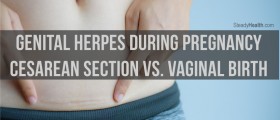
High-risk pregnancy can be defined as pregnancy during which a woman develops (or she has already been suffering from) a condition that puts her, the developing fetus or both at a higher risk of complications. The risk may linger throughout the entire pregnancy and is also present at birth.
Causes of High-Risk Pregnancy
There is a variety of reasons why a pregnancy can be declared to be a high-risk pregnancy. They are either associated with the mother or the baby. The most common risk factors responsible for high-risk pregnancy are the age of the pregnant woman, her weight, problems with previous pregnancies and medical conditions the woman is suffering from.
High-risk pregnancy generally occurs in very young women as well as older women. Furthermore, in women who are obese and overweight and in women who are underweight the risk of complications significantly increases. In case a woman has already been pregnant and had certain complications or developed certain illnesses during previous pregnancies she is at a higher risk each time she gets pregnant again. And finally, all women who are suffering from chronic conditions particularly those who are on prolonged therapy with certain medications (those suffering from high blood pressure, diabetes, HIV etc.) carry significant risk of complications during pregnancy.
Medical Conditions Associated with High-Risk Pregnancy
Preeclampsia is a serious medical condition that affects only pregnant women. It is characterized by elevated blood pressure, presence of proteins in the woman's urine and certain changes in blood level of liver enzymes. Damage due to previously mentioned changes affects several organs including kidneys, liver and brain. The condition must be treated promptly since if left neglected it progresses into eclampsia, a more severe form of the disease in which the woman develops seizures and may end up in a coma. Both conditions may cause serious damage to both the mother and the baby if not treated on time.
Gestational diabetes is a type of diabetes that affects pregnant women. This condition is adequately treated and many women suffering from gestational diabetes deliver healthy babies. By following doctor's orders a woman can successfully avoid potential complications.
HIV infected women can transmit the virus to their unborn child during pregnancy and the virus can also affect the baby during delivery or breastfeeding. Still, today doctors are able to prevent transmission of the virus to a certain extent and allow the mother to deliver a full-term baby without transmission of the virus.
There are several more conditions that can affect the entire course of pregnancy and cause damage to both, the mother and the baby. These high-risk pregnancies require constant monitoring and regular check-ups. But with miracles of today's medicine majority of such women are able to deliver healthy, full-term babies.

















Your thoughts on this
Loading...